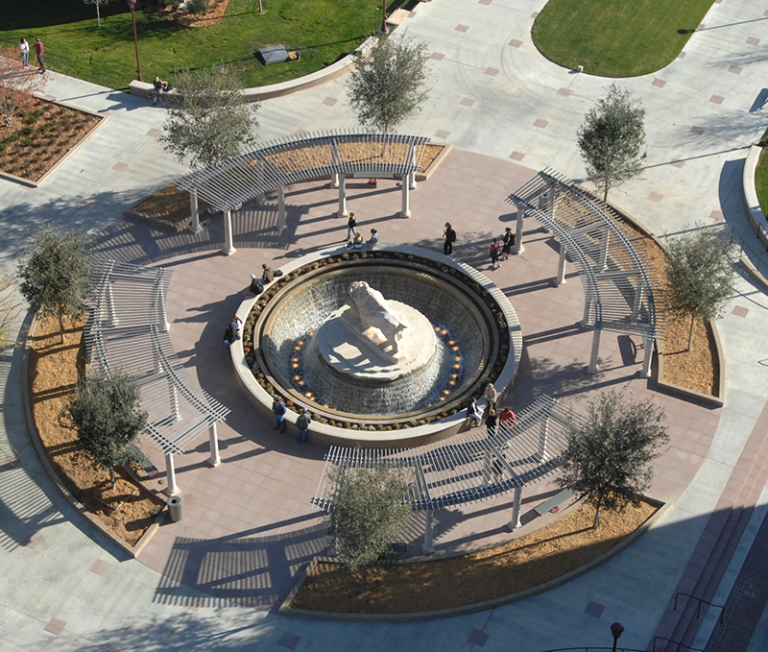
Our nation approaches its 250th year in 2026. We should reflect, not only on what America has achieved, but on what sustains a nation. The endurance of our constitutional republic has never depended solely on wealth or power. It has relied, above all, on knowledge and insight; on who we are as a people and on why and how we govern ourselves.
Knowledge and appreciation of citizenship and patriotism (“dirty” words on some university campuses) are not inherited. They must be taught, renewed and practiced. There may be a better place for that renewal than the university, and if so, let it happen there as well. The role of the university in civics education is not a new thought. Winston Churchill reflected, “The first duty of a university is to teach wisdom, not trade; character, not technicalities.” From conception, American universities were not created solely to prepare students for careers; they were established to prepare citizens to cultivate the understanding, discipline and character required for self-government. Wisdom and character are Churchill’s duet. A university that forgets its civic mission loses sight of its higher purpose. The first American university, Harvard, was founded by the Massachusetts Bay Colony in 1636 to train clergy for the new world, wisdom and character development.
The university is more than a marketplace of ideas or a laboratory of innovation. Universities should be civic institutions entrusted with the care of the Republic itself. Teaching civics reaffirms public trust. Education is not merely about private advancement, but also the public good.
Why teach civics in a university? Because freedom depends on it. A constitutional republic can endure only when its citizens know how to reason, listen and lead. Civics education equips students with a deeper purpose, a sense of belonging to something larger than themselves. Civics learning helps students understand the Constitution not solely as an artifact, but as a life-giving promise, an ongoing project seeking justice and liberty. The Constitution reminds us that rights and responsibilities are bound together for the individual and the common good to sustain and promote an exceptional nation. Civics teaches us that disagreements, when conducted with respect and reason, are not a weakness of republicanism, but its defining strength.
Contemporary universities are often judged solely by their economic outcome. Jobs secured by graduates, starting salaries, educational costs and indebtedness, as well as the time to degree, all matter, but each alone is shortsighted and insufficient. To educate a person for work without educating them for citizenship is robbery.
An engineer must understand the ethical and social impact of technology. A nurse must know not only how to care for patients, but how healthcare policy shapes lives. A business leader must recognize that markets function most effectively when grounded in trust and fairness, with the freedom to succeed or fail. In every field, understanding civics should provide professional excellence with a moral compass. Professionalism devoid of morals is left wanting. Civics education in universities, especially public universities, reminds students that learning carries an obligation to serve, to speak truthfully and to uphold the institutions that promote liberty.
At a time when public discourse is fractured and distrust runs deep, civics education revives the virtues that sustain life in an egalitarian and genuinely free society. Civics teaches us to deliberate rather than denounce, to listen rather than label.
Civic-mindedness slows us down, asks us to reflect, read and understand before we react. Students need to be able to distinguish between opinion and raw argument, between fact and falsehood. And most importantly, civics helps students see one another, not as enemies in a cultural war, but as fellow citizens in a national experiment that has been underway for 250 years, and thanks be to God Almighty, it’s not over yet.
Students are hungry for meaning. They know education is more than a ticket to employment. They long for education to connect to something enduring. Teaching civics may provide that connection by grounding students in history, challenging them to think deeply and calling them to service. The university itself should be a model of the civil order we hope to preserve. However, too frequently, the academy becomes a hotbed of competing ideologies that stifles sincere and open inquiry and the pursuit of truth. Volume replaces the vitality of thought: civic order, respect and the “Golden Rule” guide life in a well-functioning constitutional republic. Passion and respect can coexist peacefully, regardless of what shrill social media may promote. Universities should be the place of such coexistence, and when they do, both the individual and the community are enhanced and strengthened.
As we approach our nation’s semi-quincentennial anniversary, we should remember that the American experiment was, from its inception, an educational experiment in every sense of the word. The framers of the Republic believed that self-government required self-discipline and that education was one of its surest safeguards. Thomas Jefferson called for “an aristocracy of virtue and talent.” Benjamin Franklin urged that learning should “render youth more useful and more virtuous.” Their vision endures: the idea that knowledge and citizenship are inseparable.
A national anniversary allows us to celebrate and recommit to ensuring the next generation understands the principles that have sustained this nation for 250 years through civics education. Civics well-taught is not nostalgia, but national renewal. Civics is how we uphold the faith in the founders’ promise and prepare for the future.
Citizens who know how to govern, to be governed, evidenced in argument without hatred, and who understand that liberty and responsibility are forever joined, are the lifeblood of a free society. If our universities can help nurture such citizens, then The American Experiment will not merely survive its 250th year; it will be reborn stronger and wiser for centuries to come.
Walter V. Wendler is the President of West Texas A&M University. His weekly columns, with hyperlinks, are available at https://walterwendler.com/.




